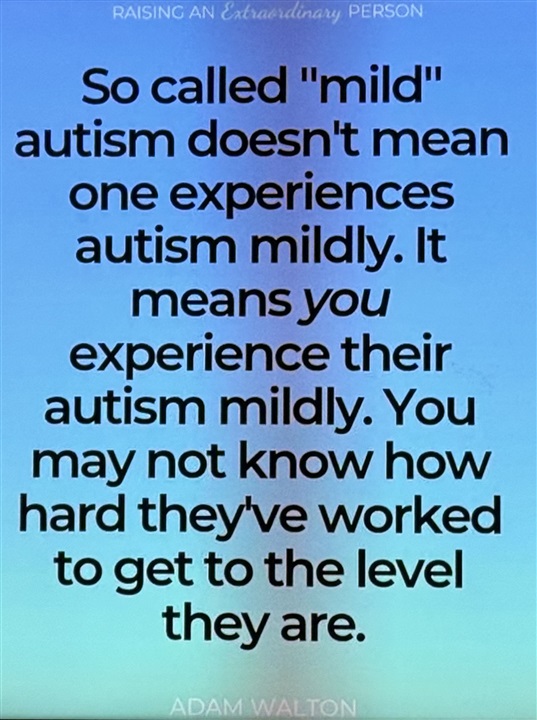Is What does this actally mean in practice, not the dictionary definition, but for those of us so labelled? Although no ones ever told me I'm high functioning, I guess I am.
Is it a helpful term or unhelpful?
Does it express our experiences properly or reflect away from them?
Is this a term more helpful to NT's than us?
Personally I find the term a bit insulting as well as divisive and dismissive.




